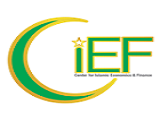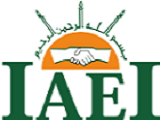Heart Half Implementation Sharia Banking In Indonesia
Abstract
Islamic banking in Indonesia has been regulated in the law, namely Law number 10 of 1998 concerning amendments to Law number 7 of 1992 concerning banking. As time goes by, the existing Islamic banking practices are starting to be questioned, questioned, and criticized, because there are those considered deviant even out of the sharia corridor itself. Against various problems that exist in Islamic banking, it needs to be addressed appropriately. By understanding the nature of the principle of tadrij fii tasyri, we are required to better understand and focus on the processes and stages in the implementation of syariah banking. So that with all the problems of Islamic banking faced now, it must be understood that this is still the stages, not the end and purpose of the application of Islamic banking it self. However, the main problem in the implementation of Islamic banking is the commitment. Islamic banking is in a comfortable zone with its current format. Efforts to implement Islamic banking are still half-hearted, even less serious. Even though there is a lot of criticism embedded in Islamic banking, starting from the practice of improper contracting, Human Resources (HR) who are not competent with the sharia itself, and banking products that are less adaptive and responsive.
Keywords: Implementation, Commitment, HR, Product and Agreement, Tadrij fii Tasyri
Full Text:
PDFReferences
Antonio, Muhammad Syafi’i. Perkembangan Lembaga Keuangan Islam. Jakarta: BAMUI dan BMI, 2006.
_________. Bank Syariah: Dari Teori ke Praktik. Jakarta: Gema Insani, 2001.
Arifin, Zainul. Memahami Bank Syariah: Lingkup, Peluang, Tantangan dan Prospek. Jakarta: Bevet, 2000.
Beik, Irfan Syauqi. “Islamisasi Ilmu Ekonomi”, Jurnal Ekonomi Islam, 7. Juli-Desember, 2016. 183-204.
Hirsanuddin. Hukum Perbankan Syariah di Indonesia. Yogyakarta: Genta Press, 2008.
Hulwati. Ekonomi Islam. Jakarta: Ciputat Press, 2006.
Irwanto, Saputro, A. D., Rohaeti, E., & Prodjosantoso, A. K. (2018). Promoting Critical Thinking and Problem Solving Skills of Preservice Elementary Teachers through Process-Oriented Guided-Inquiry Learning (POGIL). International Journal of Instruction, 11(4), 777-794. https://doi.org/10.12973/iji.2018.11449a
Karim, Adiwarman Azwar. Sejarah Pemikiran Ekonomi Islam. Jakarta: Rajawali Press, 2010.
Khalaf, Abdul Wahab. Searah Pembentukan dan Perkembangan Hukum Islam. Jakarta: PT Raja Grafindo Persada, 2002.
Khatimah, Husnul. Penerapan Syari’at Islam. Yogyakarta: Pustaka Pelajar, 2007.
Muhammad. Bank Syariah: Analisis Kekuatan, Kelemahan, Peluang dan Ancaman. Yogyakarta: Ekonisia, 2006.
Muslich, Ahmad Wardi. Fiqh Muamalat. Jakarta: Amzah, 2013.
Purnamasari, F., & Darmawan, A. (2017). Islamic Banking and Empowerment of Small Medium Enterprise. Etikonomi, 16(2), 221-230.
Rahmanti, Virginia Nur. “Mengapa Perbankan Syariah Masih Disamakan Dengan Perbankan Konvensional ?”, IMANENSI, 1. September, 2013.
Rivai, Veithzal. et al. Bank and Financial Institution Management Conventional & Sharia Syistem. Jakarta: Raja Grafindo Persada, 2007.
_________. Islamic Business And Economic Ethic: Mengacu Pada Al-Qur’an dan Mengikuti Jejak Rasulullah SAW dalam Bisnis, Keuangan dan Ekonomi. Jakarta: Bumi Aksara, 2012.
Santi, Mei. “Bank Konvensional vs Bank Syariah”, Eksyar, 02. Juni, 2015. 222-243.
Sutedi, Adrian. Perbankan Syariah: Tinjauan dan Beberapa Segi Hukum. Bogor: Ghalia Indonesia, 2009.
https://almanhaj.or.id/
https://www.kompasiana.com/
https://zaimsaidi.com/
DOI: http://dx.doi.org/10.24042/febi.v3i2.3258
Refbacks
- There are currently no refbacks.
Copyright (c) 2019
Ikonomika : Jurnal Ekonomi dan Bisnis Islam is a Journal of Islamic Economics and Business, Published by the Faculty of Islamic Economics and Business at UIN Raden Intan Lampung Indonesia. This work is licensed under a Creative Commons Attribution-ShareAlike 4.0 International License.






11.png)


